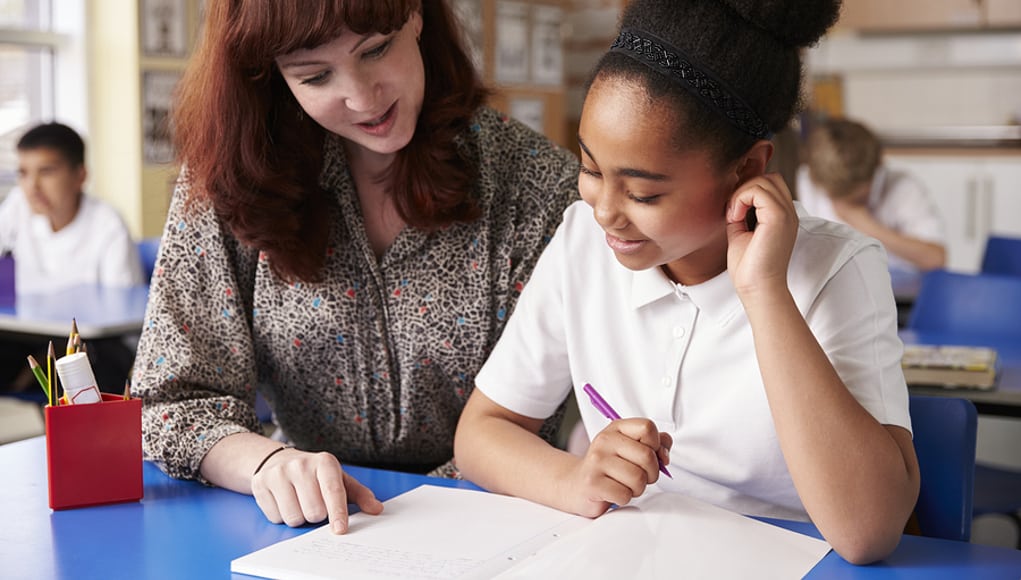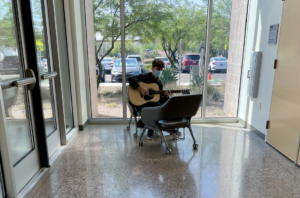The Future of Personalized Learning

As 2017 comes to a close we can reflect on the journey education has taken and the changes the world has seen. We can also start to speculate and predict where 2018 will take us. CEO and Cofounder of New Classrooms, Joel Rose predicts movement in personalized learning next year, including new, integrated learning models, accountability and funding for research and development.
New, Integrated Learning Models
Similarly to Tom, Rose believes that social and emotional learning skills will be given a larger emphasis in education during 2018. Rose knows that there has been an upswing in conversations revolving around how to educate children in the 21st century and that there has been a push towards using approaches like competency-based learning, social-emotional learning and personalized learning. He predicts that these approaches will be unsuccessful on their own.
Rose says, “bringing them to life will require new models that integrate them in a coherent way to reimagine the entire student experience.”
For example, Teach to One integrated social-emotional learning skills with their exercises designed to build student confidence, perseverance and ability to take on challenges.They give students the opportunity to tackle these new skills in addition to excelling academically, empowering students to push themselves in a number of different ways.Teach to One also challenges their students to become self-aware by encouraging them to rate their own confidence at the end of each day.
During the next decade, Rose predicts more schools will move away from the traditional factory-based education model that is dependent on textbooks and move towards school-based educational models with an academic design that shows what students learn along with an operating structure that shapes when, where and how they learn. Rose predicts that some districts may choose to have multiple model providers, allowing schools to pick the right model for them, giving educators more autonomy. The ability to have choice in the model for each school can allow educators to find the most promising approach for the future.
Accountability
Come 2018, Rose predicts there will be a greater recognition of the dissonance between grade-level assessments and the philosophies around personalized learning and meeting kids where they are.
“We can’t have both personalized learning and a standardized accountability system that treats all students as if they come in at the same level, especially for math, which is so cumulative,” said Rose.
As education shifts towards a personalized learning approach, the current accountability systems have to be reshaped (see our recent guide on digital accountability). Rose predicts that states will move towards accountability systems where individual student progress is measured through adaptive assessments. This shift will take some time and will have to be done incrementally.
Rose hopes to see states adopting a competency-based accountability structure that tracks students’ successes against each standard. A student, whether they were in seventh or eleventh grade, could be issued the same credential for Algebra once they demonstrate mastery of 42 out of the 51 skills related to Algebra.
Almost half of the country is beginning to open the door for competency-based education through policies that allow for more flexibility. Under Obama’s Every Student Succeeds Act, states have been given the opportunity to improve or replace their current assessments with ones that measure complex demonstrations of mastery. Students will show they have learned the skills they need and these demonstrations of mastery will provide an accurate picture of each individual student’s learning path and skills.
As educators see that competency-based models can support students in achieving academic success, Rose predicts these models will continue to gain popularity in 2018.
Funding for Research and Development, Early Adopters
During 2018 Rose anticipates we will see even more districts spending more of their instructional dollars on new models that will incorporate personalized learning. It won’t just be school districts directing money towards personalized learning, it’s expected that more philanthropy will be directed to develop and research new learning models and to support schools and districts that have pioneered these models’ initial adoption.
Teach to One has been gathering data for years and is finally in a position to use the data to, as Rose says, “crack the academic code” and learn about how kids learn. They’ve gained insights through their data collection which include:
- Understanding the impact of academic readiness.
- How to best support teachers in making the transition to a new school year and a new set of students.
- How to find out what students know/don’t know at the beginning of the school year.
- How to best integrate multiple modalities of instruction.
- How we can use advanced tools like big data to further tailor each student’s experience to what’s likely to work best.
These pioneer schools, districts and programs have been given the opportunity to study the optimal learning progressions for students. We can learn what lessons have the greatest impact on students and whether social-emotional skills correspond with academic achievement. Because personalized learning organizations are gaining the ability to ask and answer these questions, we are closer to being able to adjust our learning models to support more students and various skill levels.
What do you think will change in 2018? Where do you hope to see growth? What will it take to continue to implement more competency-based personalized learning for every student? Comment below with your predictions.
For more, see:
- 15 Learning Predictions for the New Year
- Change Will Be Slower Than You Think, Then Faster
- Closing the Digital Divide to Ensure the Future of Learning
Stay in-the-know with all things EdTech and innovations in learning by signing up to receive the weekly Smart Update.






0 Comments
Leave a Comment
Your email address will not be published. All fields are required.